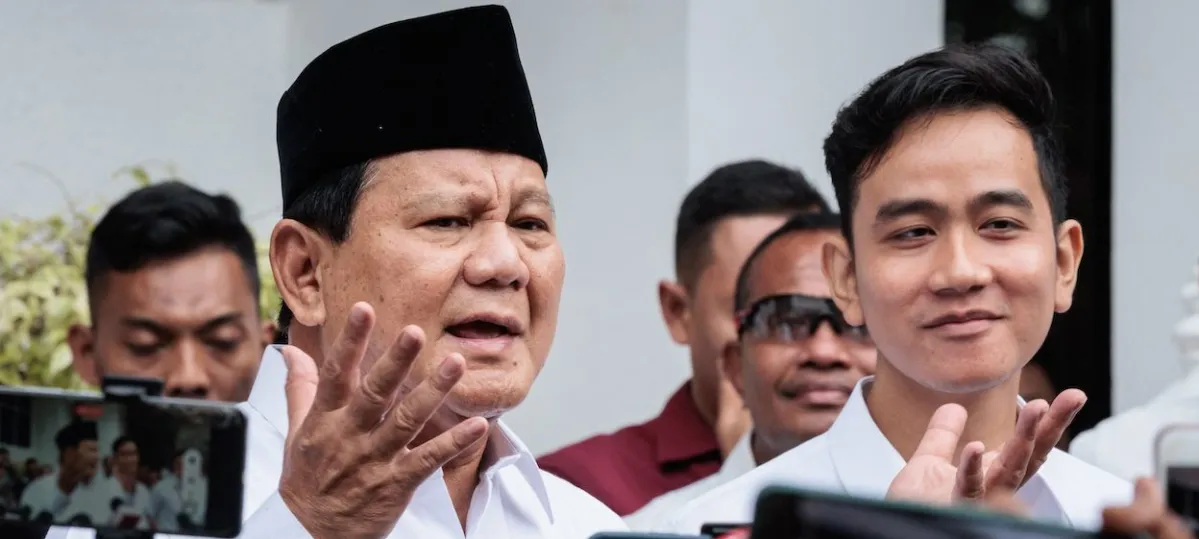Election Integrity: Safeguarding Democracy in Indonesia
JAKARTA, turkeconom.com – Election Integrity: is a cornerstone of democracy, ensuring that electoral processes are fair, transparent, and reflective of the will of the people. In Indonesia, a nation with a rich history of political transformation, safeguarding the integrity of elections is crucial for maintaining public trust and fostering democratic governance. This article explores the challenges and measures related to election integrity in Indonesia, highlighting the importance of a robust electoral system for the nation’s democracy.
Historical Context

Democratic Transition
Indonesia’s journey towards democracy began in 1998 with the fall of the Suharto regime, which had maintained an authoritarian grip on power for over three decades. The subsequent democratic reforms led to the establishment of a multi-party system and regular elections, allowing citizens to participate actively in the political process.
Importance of Election Integrity
As Indonesia has embraced democratic principles, the integrity of its elections has become increasingly vital. Free and fair elections are essential for:
- Legitimacy: Ensuring that elected officials represent the true will of the people.
- Stability: Reducing political unrest and fostering social cohesion.
- Accountability: Empowering citizens to hold their leaders responsible for their actions.
Challenges to Election Integrity
Corruption and Malpractice
Corruption remains a significant challenge to election integrity in Indonesia. Instances of vote-buying, manipulation of voter lists, and abuse of power can undermine the democratic process. Political elites may engage in corrupt practices to secure their positions, eroding public trust in the electoral system.
- Case Study: Reports of vote-buying during the 2019 presidential elections highlighted the ongoing struggle against corruption. Such practices not only compromise the integrity of elections but also disenfranchise voters who seek honest representation.
Voter Education and Participation
Low levels of voter education and awareness can impact election integrity. Many citizens may lack understanding of the electoral process, leading to uninformed voting decisions or apathy towards participation.
- Impact: Inadequate voter education can result in lower turnout rates and a less informed electorate, making it easier for corrupt practices to flourish.
Political Violence and Intimidation
Political violence and intimidation can threaten the safety of voters and electoral officials, further jeopardizing the integrity of elections. In some regions, political rivalries may escalate into violence, deterring citizens from exercising their right to vote.
- Example: During local elections, reports of intimidation and violence against candidates and their supporters have been documented, creating an atmosphere of fear that undermines the democratic process.
Measures to Safeguard Election Integrity
Strengthening Institutions
To enhance election integrity, it is essential to strengthen the institutions responsible for conducting elections. The General Elections Commission (KPU) plays a vital role in overseeing the electoral process, and its independence and capacity must be upheld.
- Reforms: Implementing reforms to ensure the KPU operates transparently and is free from political interference can significantly improve public confidence in the electoral process.
Promoting Voter Education
Increasing voter education initiatives is crucial for fostering an informed electorate. Programs that educate citizens about their rights, the electoral process, and the importance of their participation can empower voters and promote civic engagement.
- Community Engagement: Collaborating with civil society organizations to conduct outreach and education campaigns can help raise awareness and increase voter turnout.
Enhancing Transparency and Accountability
Implementing measures to enhance transparency and accountability in the electoral process is essential for safeguarding election integrity. This includes:
- Monitoring Mechanisms: Establishing independent monitoring bodies to oversee elections and report on irregularities can help deter malpractice.
- Public Access to Information: Ensuring that electoral data, such as voter lists and election results, are publicly accessible can foster trust and accountability.
Leveraging Technology
The use of technology can play a significant role in improving election integrity. Electronic voting systems, biometric identification, and online voter registration can enhance the efficiency and transparency of the electoral process.
- Example: The implementation of electronic voting in certain regions has shown promise in reducing instances of fraud and streamlining the voting process.
Conclusion
Election integrity is crucial for safeguarding democracy in Indonesia. As the nation continues to navigate its democratic journey, addressing the challenges to electoral integrity is paramount. By strengthening institutions, promoting voter education, enhancing transparency, and leveraging technology, Indonesia can work towards ensuring free and fair elections that reflect the will of its citizens.
The commitment to safeguarding election integrity not only reinforces democratic principles but also fosters public trust in the political system, ultimately contributing to a more stable and prosperous Indonesia. As citizens engage in the electoral process, their voices will shape the future of the nation, ensuring that democracy remains vibrant and resilient.
Sharpen Your Skills: Delve into Our Expertise on Politic
Check Out Our Latest Piece on Democratic Growth!











